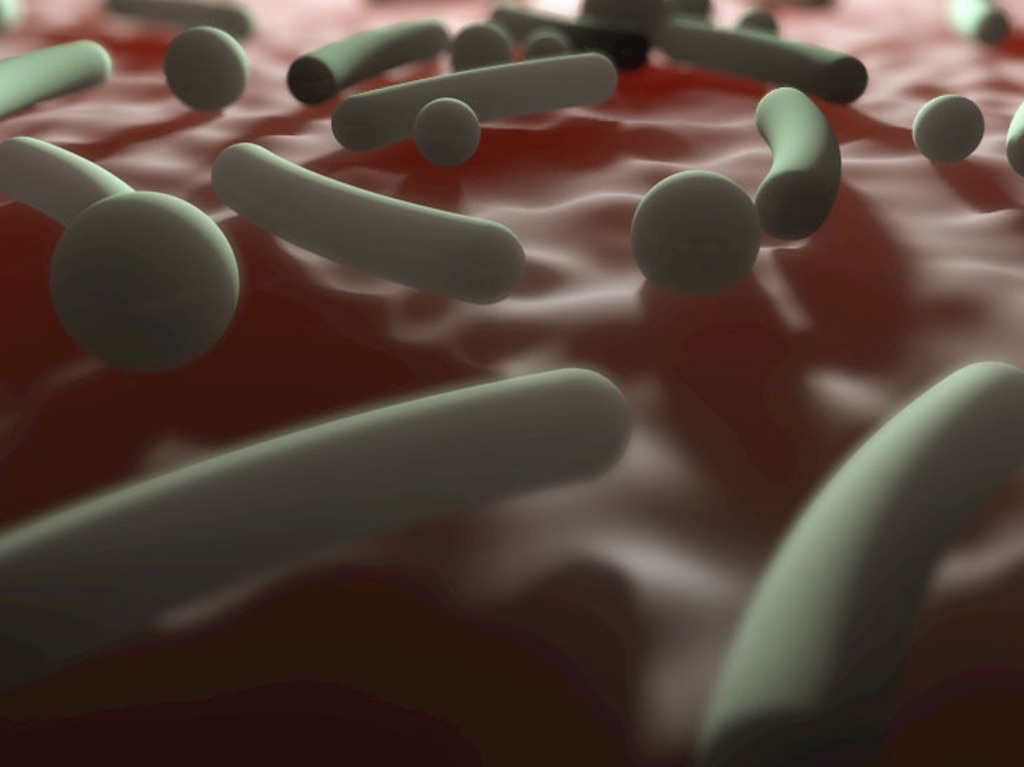Coronavirus health: Genetic and lifestyle factors could be behind different responses to coronavirus, symptom tracking study finds
Loss of taste and smell are key COVID-19 symptoms, now experts are probing the link between lifestyle factors and the virus.

Call it a gut feeling – but the expert research team behind a successful COVID-19 symptom tracking app is investigating how environmental factors such as a person’s gut microbiome, diet and lifestyle could determine how they experience coronavirus.
University College London’s professor of genetic epidemiology Tim Spector, is a leading authority on gut health and director of Twins UK – one of the world’s most clinically detailed studies of identical and non-identical twins.
He has led the successful development of a COVID-19 symptom tracking app that has revealed previously unknown symptoms of the disease, including a loss of taste and smell, chest pain and strange rashes around the toes and fingers.
Now, his team are using detailed clinical information from thousands of twins to uncover what exactly makes a person susceptible to COVID-19 symptoms.

So far, research based on 2633 sets of non-identical and identical twins who have been logging their daily health shows that genetic makeup, along with other lifestyle factors such as immune system, diet, gut bacteria and “viral load” a person is subjected to, influence how they experience the virus.
“In the next phase of this we’re going to be working out why [COVID-19] is attacking certain people more than others. It might be due to gut health – you can fight off infections better – I’m not saying it’s the only factor but it could be something you can do something about,” Prof Spector told news.com.au.
MORE: Follow the latest virus news here
MORE: Aussie researchers seek answer to critical question
Older people and those with underlying conditions are at greater risk from COVID-19. However why some people are asymptomatic or have a very mild case of the disease while others are killed remains a key question for researchers.
Prof Spector said while there is no direct evidence the gut microbiome is indicative of a person’s susceptibility to COVID-19, it’s importance to the immune system and links to other diseases mean there is “quite a lot of speculation that might be the case.”
“Two of the [risk factors for COVID-19] are being overweight and having diabetes and we know that your gut microbiome is severely affected in both conditions,” he said.
“It’s going to be really important because the reason it might be attacking poor ethnic minority groups may not be to do with race but poor diets and poor health.”

The gut microbiome is the collective name for the tiny microbes living inside a person’s gut.
Prof Spector said it includes “anything you need a microscope to see” including bacteria, fungi, parasites and viruses which congregate in huge numbers – more than five times as many as there are cells in your body.
“They should be thought of as a virtual organ. They work together as a group.”
He explained the two kilogram mass should be regarded as a liver or kidney-type organ and until recently, has been the “missing link” between nutrition and the human body.
“If you have a diverse set of microbes then you’re healthy. If you are unhealthy, you will have less species,” he said. “Certain microbes are beneficial markers of health and others are markers of bad health.”
Every person develops a unique gut microbiome from the birthing process and in the first three years of life. It’s used to digest food, extract nutrients and control people’s immune system, as well as influence metabolism, weight control and appetite.
While much of the relationship between the gut and immune system is not yet fully understood, it’s been linked to range of diseases such as auto-immune conditions, arthritis, thyroiditis, colitis as well as allergies and diabetes. It’s also been linked to conditions such as autism and whether someone might be likely to die soon, according to a recent report.
In addition to lifestyle factors, the COVID-19 symptom tracking team are also interested in studying specific genes relating to the immune system and one called ACE2 – dubbed a “molecular gateway” - coronavirus uses to attach itself and enter a person’s cells.
The findings of the study have been submitted for peer review.
Lead researcher, Professor Frances Williams, said the team was “hugely grateful” to the twins for taking part in the study.
“We are continuing to sift through the valuable data gathered from the twins over the years to understand more about the underlying biology and progression of COVID-19, and potentially identify those who might be most at risk based on their genetic makeup.”

TIPS FOR GOOD GUT HEALTH
Boosting the diversity of your gut microbiome is a key thing people can do for overall health.
Prof Spector said the main thing to do is to eat mainly plants – at least 30 different varieties a week.
“It’s no use having the same kale smoothie every day,” he said.
Instead, nuts, seeds, wholegrains and healthy fats should be on the menu. Plus fermented foods such as kimchi, kombucha and kaffir – fermented milk – which produce chemicals that are valuable for gut health.
Processed food, extra chemicals, sweeteners and alcohol should be avoided, along with salt and sugary drinks.
And don’t worry about fresh produce going off, freezer staples like berries and vegetables work just as well as fresh. Canned fruit and beans are also good, as well as yoghurt and cheese with live probiotics in them.
Victoria Craw is the foreign editor for news.com.au | @Victoria_Craw Victoria.craw@news.com.au




